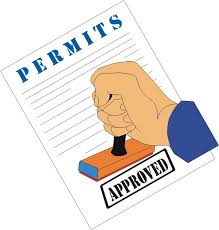记忆方法
将“permit”分解记忆,想象一个“permit”就像“纸张”(纸片)上有“佩”(pie),意味着需要“纸张”(许可)上的“佩印”(授权)才能进行某事。这种方法通过结合视觉形象和字的字形来帮助记忆。
以上内容由AI生成, 仅供参考和借鉴
中文词源
permit 许可
per-,通过,-mit,离开,送出,词源同emit,mission.
英语词源
- permit
-
permit: [15] Permit is one of a large family of English words (including also admit, commit, etc) which go back to Latin mittere ‘let go, send’. Combination with the prefix per- ‘through’ produced permittere ‘let go, give up’, hence ‘allow’. Amongst derivatives to have reached English are permissible [15], permission [15], and permissive [17].
=> admit, commit, mission, permission, submit, transmit - permit (v.)
- late 15c., from Middle French permetre and directly from Latin permittere "let pass, let go, let loose; give up, hand over; let, allow, grant, permit," from per- "through" (see per) + mittere "let go, send" (see mission). Related: Permitted; permitting.
- permit (n.)
- "written statement of permission or license," 1714, from permit (v.).
权威例句
- 1. He can let the court's decision stand and permit the execution.
- 他有权维持法庭判决,批准死刑生效。
- 2. Will they permit you to sit in on a few classes?
- 他们会同意你旁听几节课吗?
- 3. Permit me to give you some advice.
- 请允许我给你提点建议。
- 4. The state does not permit write-in votes.
- 该州不允许投票给非推荐候选人。
- 5. She hasn't got a work permit.
- 她还没有拿到工作许可证。

